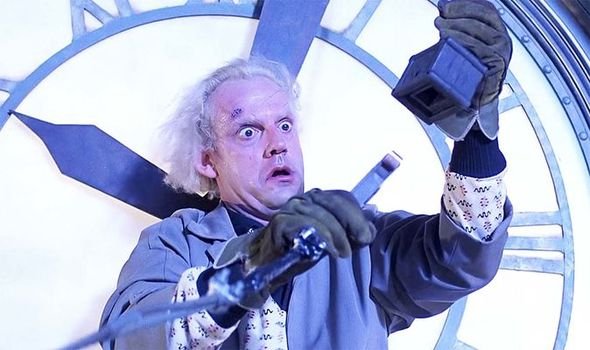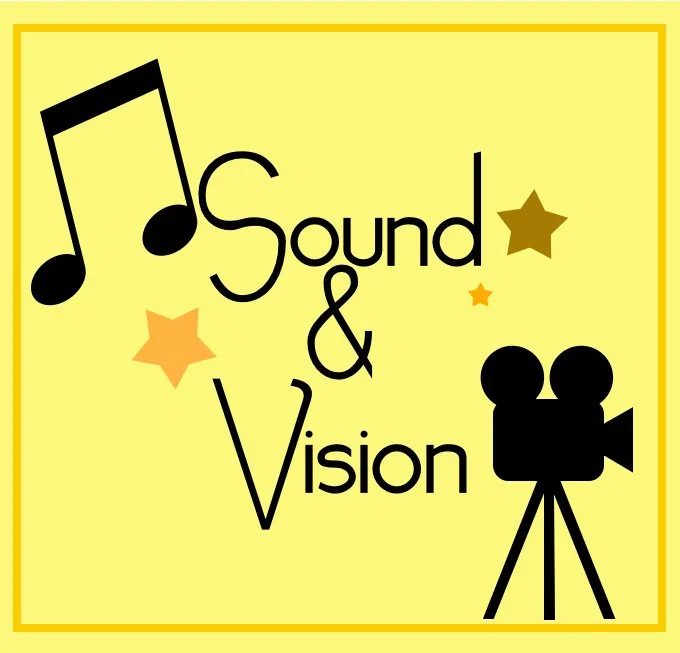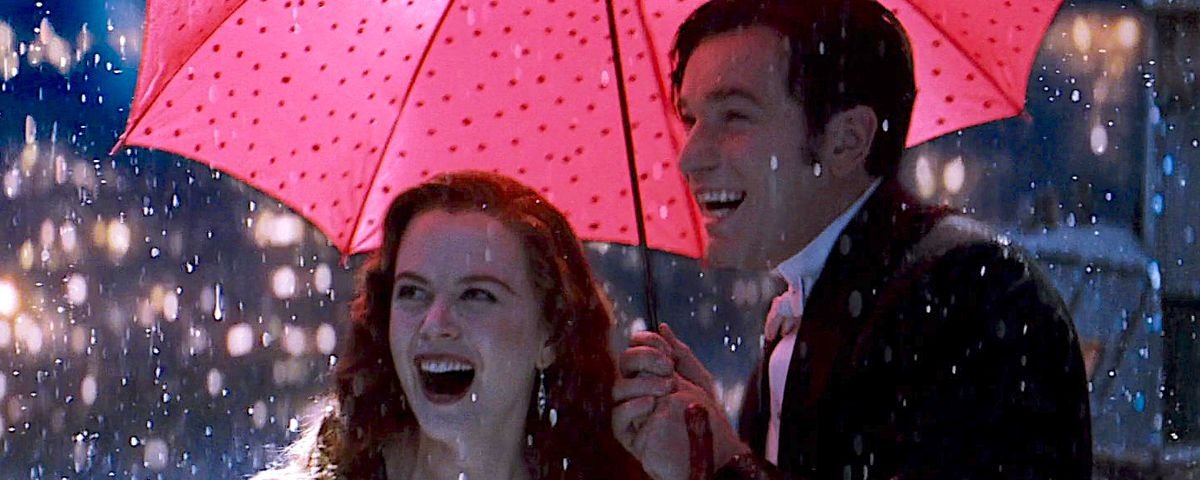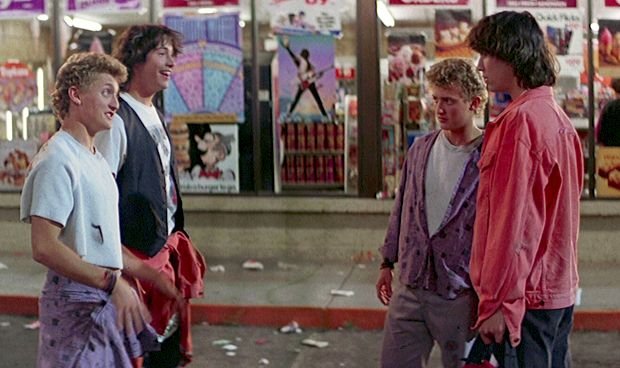MovieJawn’s Sound & Vision Poll: Sam Morris’s Ballot
Welcome to MovieJawn’s first ever Sound & Vision Poll, where our writers share why they love their 10 favorite movies of all time!
by Sam Morris, Staff Writer
One of the pitfalls of being an academic who presents at conferences and publishes about popular culture is the constant justification: Does this film (or TV show, album, etc.) merit serious consideration? As a friend of mine once told me in college, “You like what you like.” I’ve been teaching that lesson for over twenty years. Much of the value that a work of pop culture has is the value that you give to it.
For this list, I looked at all the films that I’ve seen and given five stars to on Letterboxd and picked my ten favorites. I’ve seen a lot of great films, and I’ve seen a lot of films that I’ve loved. Some films fall into both categories, but for the list below the only criteria that I’ve used to determine “best” is how much I love them.
Lost in Translation (dir. Sofia Coppola, 2003)
Recently graduated from college? Check. Recently married to someone, a decision that was probably a mistake? Check. Unsure of which direction to take in life? Check.
This film is an example of the right place and the right time. I saw myself in Charlotte, for all the reasons above–-but also because I’ve lived in Japan. The happiest memories I have from that time are of time spent with friends in karaoke boxes. Bill Murray’s rendition of Roxy Music’s “More Than This” is devastating. The next scene in which Charlotte is watching the Tokyo lights go by, set to My Bloody Valentine’s “Sometimes”…even more devastating. We’ll never know for sure what Bob says to Charlotte at the end of the film, but I hope he told her to run away from her husband as fast as she can.
“Vibes only” filmmaking is not typically my favorite style, but this film is clearly an exception. The fact that I had already seen The Man Who Wasn’t There and Ghost World is a good bit of what drew me to Lost in Translation, but the message that Coppola was sending is what grabbed me in the first few minutes of the film and has yet to let go.
Love Actually (dir. Richard Curtis, 2003)
Love Actually is the only Christmas film that I insist on watching every year. Richard Curtis’s brand of heart-on-sleeve sentimentality resonated with me when I saw this movie in the theater, and I expect it still will this December. (About Time is another great Curtis film, also starring Bill Nighy.) I began calling this film a cinematic Rorschach test some years ago. I contend that a person’s top 3 favorite storylines say a lot about that person. Is Hugh Grant’s prime minister in your top 3? If not, why do you hate joy? Grant dancing to the Pointer Sisters is the greatest scene in cinematic history AND the best gif of all time. Is the Rickman/Thompsons storyline in your top 3? Yikes.
Hugh Grant as prime minister and Liam Neeson as stepfather are still two of my favorites. For years, Colin Firth as befuddled murder-mystery writer was my number three. I’m not sure when the tale of Colin Frissel supplanted the man who would learn another language just so he could express his love, but it did. The unbridled optimism of it all wore me down. I love it, actually. As my namesake in the film says, “Let’s get the shit kicked out of us by love!”
Bend It Like Beckham (dir. Gurinder Chadha, 2002)
Because of a series of events too long to detail here, Bend It Like Beckham is a film that I’ve taught several times as an example of multiculturalism and as a general introduction to film studies. Take my word for it: Gurinder Chadha puts on a clinic in this film. Or don’t take my word for it: watch the engagement party scene, but make sure to include the exterior establishing shots. Chadha also handles the culture clashes in the film so well that when Joe (Jonathan Rhys Meyers) tries to tell Jess (Parminder Nagra) that he knows what she’s going through after she’s being called a slur on the field by saying, “Jess, I’m Irish,” the humor doesn’t deflate the emotion of the moment at all.
This film cleared the way for Parminder Nagra and Archie Panjabi to find significant roles on American television series. Nagra spent six seasons on ER, while Panjabi played one of my favorite television characters of all-time: Kalinda Sharma (The Good Wife). As for Chadha, Blinded by the Light (2019) absolutely leveled me with its emotional honesty. Bend It Like Beckham has a fun soundtrack, yes, but Blinded by the Light foregrounds the way we interact with the music we love. The Boss is absent from Bend It Like Beckham, but Chadha gets a lot of mileage out of “Inner Smile” by Texas as well as tracks by two different Spice Girls!
Moulin Rouge! (dir. Baz Luhrmann, 2001)
Speaking of the music that we love, how about that “Elephant Love Medley”? I love the excesses of Baz Luhrmann’s films, even when he crams three movies into one (Australia) or does whatever it is he did with Elvis. Moulin Rouge! and Romeo + Juliet are feasts for the eyes. I clearly remember thinking that I didn’t know that movies could be made this way. I also remember the night that I went to see Moulin Rouge! with my friends. The usher, assuming the other girls had dragged me along with them, said it would be okay if I went into another auditorium instead. I told him, “Oh, I picked the move tonight!”
This film is much more than a jukebox musical. Nicole Kidman, Ewan MacGregor, and Richard Broadbent are giving their all in their respective roles of bohemian writer, courtesan, and proprietor. John Leguizamo delivers his second great Luhrmann-inspired performance, having also played Tybalt in R + J. Should Kylie Minogue have had a bigger role as the green fairy? Absolutely. Romeo + Juliet has the better soundtrack, and I have a special place in my heart for Angela Chase Claire Danes. Moulin Rouge!, however, is Luhrmann at his most Luhrmann.
Good Will Hunting (dir. Gus Van Sant, 1997)
Remember, no matter what happens, Ben Affleck and Matt Damon are Oscar winners. Then again, so is Robin Williams. Who didn’t win an Oscar? Elliott Smith, who was nominated for “Miss Misery.” As Madonna said when she announced “My Heart Will Go On” as the winner of the category, “What a shocker.” Still, though, the half-dozen Smith songs included in Good Will Hunting go a long way toward establishing the mood.
I admit that the obvious choice of Robin Williams film for an English teacher is Dead Poets Society. Don’t get me wrong, I love that film as well, especially the takedown of J. Evans Pritchard, Ph.D. If pressed, however, I’ll take the climactic scene in Good Will Hunting that features Sean (Williams) and Lambeau (Stellan Skarsgård) finally hashing out their history. “I know who I am, and I’m proud of what I do,” Sean shouts, knowing his former roommate thinks he’s a slacker because he chose to teach psychology at a community college and do clinical work.
Affleck and Damon are good as well, sure. As WIlliams’s scene partner, Damon may have done the best work of his career. It’s a shame that that was twenty-five years ago. Oh well, “Do you like apples?”
Bill & Ted's Excellent Adventure (dir. Stephen Herek, 1989)
Now we’re into all-time territory. Real formative stuff. I believe we’ve seen the final Keanussance of our time because no one will ever again deny the genius of Keanu Reeves. For me, though, Reeves has always been a most excellent actor. Some say his greatest role is Neo, and some say it is John Wick. Clearly, both of those answers are incorrect. Keanu Reeves is Ted Theodore Logan.
As Tom Petty sang, “Even the losers get lucky sometimes.” Bill and Ted are losers, but they get really lucky when Rufus shows up with a time machine to help them pass their history class.
Ever wondered how they managed to pass all of their other classes?
My love for time travel logic comes from this film; more than any other film on this list, my belief in do-gooding also comes from this film. Ed Solomon and Chris Matheson have a lot to say in this film about the power of love, but they also want everyone to know that, if she were alive in the 1980s, Joan of Arc would have totally opened an aerobics studio. Solomon and Matheson refuse to let their audience take the film too seriously; if the tone begins to veer too far into the genuine, a joke and an air guitar riff will soon follow. They never turn Bill and Ted into the butt of the joke, though, because their worldview is one to be respected rather than mocked.
San Dimas high school football rules!
Back to the Future (dir. Robert Zemeckis, 1985)
Robert Zemeckis and Bob Gale, meanwhile, live in the genuine with their time travel film. Huey Lewis and the News are there to provide backup in case audiences didn’t quite grasp the message about the power of love. Now, I know, I know, this film has not aged very well. Within five minutes of Marty’s arrival into the Hill Valley of 1955, the subjects of white saviorism, incest, and voyeurism all pop up. Even a joke about Tab can’t save this section of the film.
Back to the Future has aged much less well than Bill and Ted’s Excellent Adventure, but it is difficult to entirely discount the film. In the 1980s, we liked our time travel on a single timeline with the ever-present danger of a causal loop. Before the current obsession with quantum everything, the stakes were real. I don’t think this film would’ve worked with Eric Stoltz. I can’t imagine anyone other that Michael J. Fox doing the heavy lifting required to make this film work, including getting up on stage during the Fish Under the Sea dance (Linda’s name for the dance is better) and ripping through “Johnny B. Goode.”
Footloose (dir. Herbert Ross, 1984)
I remember thinking during one of the many times that I’ve seen Footloose, “This book burning scene is really out of place. I get the whole ‘no dancing’ law as a bit, but burning books? Is that too much for this movie to handle?” In 2022, I look back on Ross and company’s film and marvel at their prescience. Like Michael J. Fox, I cannot think of an actor other than John Lithgow who could make the character of Reverend Shaw work. For Kevin Bacon, it’s easy enough to play a character from the big city who is incredulous at the way folks live in a small town. Like Robin William in Good Will Hunting, I think, it takes a talented comedic actor like Lithgow to play a role dramatically that could so easily fall into parody.
It’s obvious at this point that I love movies that require the audience to check their sarcasm and sense of bitterness at the door. Tractor chicken to the tune of Bonnie Tyler’s “Holding out for a Hero” just won’t work any other way. Angry gymnastics intercut with a montage of all the crappy things that have happened set to the angriest saxophone solo ever? Just once I want to be in a room with as much confetti and glitter flying around as there is the final scene—and I’ve been to a Kesha concert! Those teens never left Bomont. They spent the rest of their lives cleaning up their mess. If Lost in Translation is the most understated film on this list, Footloose is the film that turned the dial to eleven.
Star Wars (dir. George Lucas, 1977)
I wrote to George Lucas when I was a kid. I got a letter back (from his secretary) with a cool holographic bookmark. I lost the bookmark, but I still have the letter. I had asked about The Journal of the Whills; in the reply, she explained that the Journal is a record of episodes one through nine and that Lucas totally had all nine episodes planned out. It’s important to understand that this all happened years before the special edition theatrical releases in 1997 and all that was to follow.
The best thing about Star Wars is that it works as a standalone film, no lore necessary. A group of plucky teenagers and the old weird hermit dude taking down the Death Star. The other old British dude hanging out with the evil robot guy with the cool cape. Sassy droid and his even sassier companion. Space buns. John Williams. All of the wipes.
My feelings about Star Wars as a franchise, George Lucas, the prequel trilogy, and the sequel trilogy are a complicated mess—like Star Wars in 2022. When I was a kid, I never wanted to eat ice cream for dinner or eat all of my Halloween candy at once. Instead, I wanted more Star Wars. Well, like all the other foolish children who got what they wanted, I ended up with a stomach ache. No matter what happens, though, that first favorite film of mine will always be there waiting for me. On DVD. As a special feature. On the “extras” disc. As a non-anamorphic transfer. Thanks, George.
Meet John Doe (dir. Frank Capra, 1941)
This last entry isn’t a surprise if one follows the thread of populism that exists in many of the above films. Until recently, “populism” wasn’t a bad word, but Capra’s deployment of populism is a version of the reductive Horatio Alger “rags to riches” narrative. Super duper Gary Cooper is America in Meet John Doe. A minor league pitcher before pitch counts and Tommy John surgery, Cooper’s Long John Willoughby has been chewed up and spit out by the tycoons that have twisted and perverted the American Dream. Cynics like Barbara Stanwyck’s Ann Mitchell become cogs in the system because that’s the only way to be somewhat assured of safety and comfort. Willoughby causes Mitchell to question her role in the system, and that’s where things begin to spin out of control.
Meet John Doe comes between Mr. Smith Goes to Washington and It’s a Wonderful Life. Both of the Jimmy Stewart films are sunshine and rainbows compared to the tone of the Meet John Doe. Cooper plays mean better than Stewart. Stanwyck has more bite than Jean Arthur and Donna Reed combined. The film’s climax is brutal. Imagine if Jefferson Smith’s home state had given up on him after Taylor’s henchmen viciously attacked more children. Imagine if all the citizens of Bedford Falls didn’t come through for old George Bailey at the end. Imagine there are no Zuzu’s petals and no angels getting their wings.
Most of the films on my list express optimism, hope. Several years ago, I moved to a new school district that didn’t have a film class. I proposed one, using the materials I had from the film course I had taught in the previous district. The course wasn’t approved because some folks were concerned, apparently, about “kids watching Die Hard” in class. Of course, I didn’t include Die Hard in my film class—just the DVD bonus feature that explained pan and scan vs. widescreen!
The lesson that I took away from this incident is that many people truly never think about what movies are and why they matter. I do enjoy teaching the technical elements of film to the extent that I’m able to do so. I’m much more interested, though, in films as text and the messages that these texts have for their audiences. “You like what you like,” to which I add, “But why do you like it?” For me, it’s hope—and, if possible, a good soundtrack.












